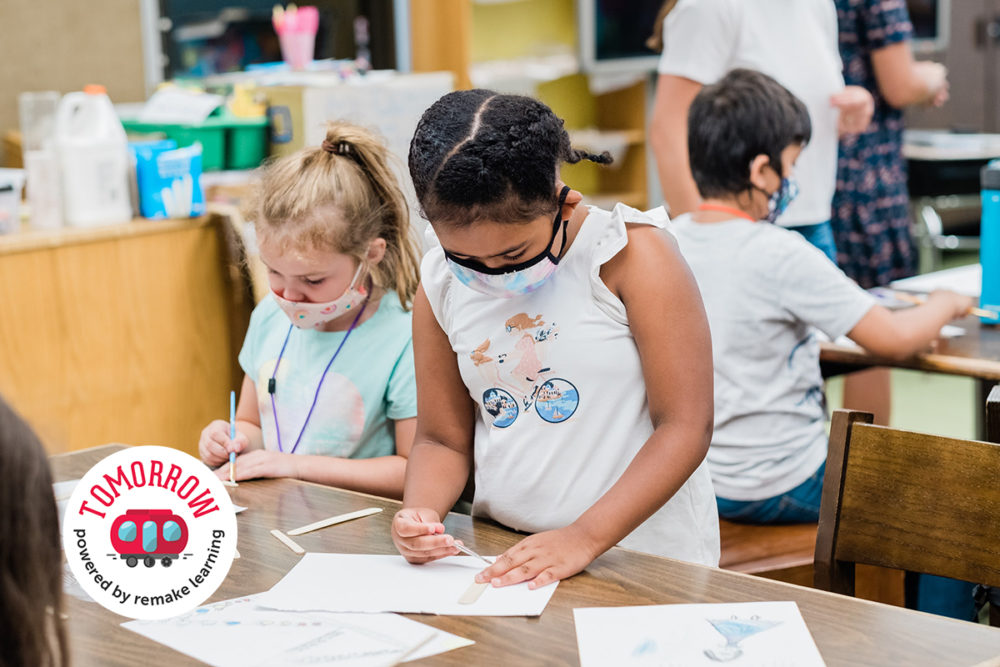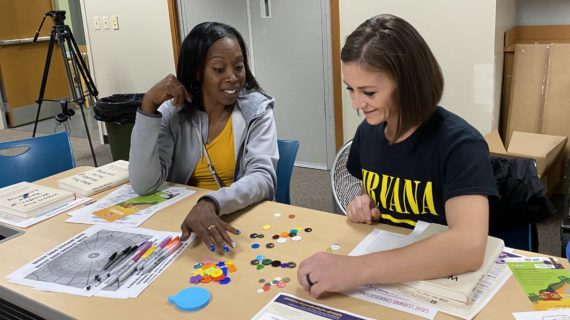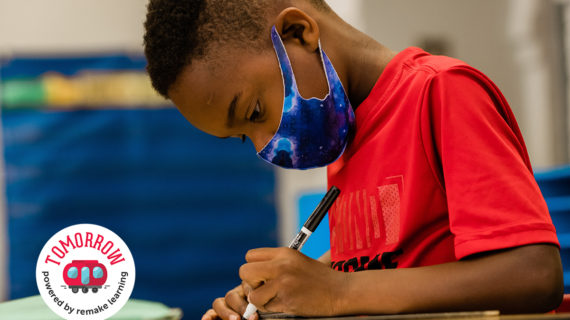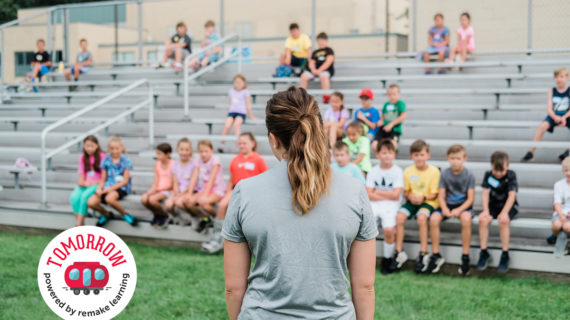
Remake Learning Days, Pittsburgh’s homegrown learning festival, ramped up the fun right when families needed it
Last spring, as teachers, students and parents pushed through the final weeks of a deeply disrupted school year, it was easy to forget that learning could actually include a powerful dose of fun. As hard as teachers were trying to keep kids motivated, so many learners and their families were struggling under the weight of the pandemic.
And then something wonderful happened. In cities and towns around America, families were offered opportunities to learn together during Remake Learning Days.
In Pennsylvania, one group of cousins and their parents discovered how to draw cartoons together with help from veteran cartoonist Joe Wos—and giggled over their creations in the process—during a Remake Learning Days Across America (RLDAA) event.
“It was phenomenal! I really enjoyed the session as a non-creative adult,” one of the parents told RLDAA’s organizers. “I shared the event link with my sister and nephews. It was great this was offered virtually and even though we live two hours from one another, my son and nephews were in the same ‘class’ learning virtually alongside one another!”

Meanwhile in California, families were outside learning about local trees and discovering all the beauty and biology at play right in their community. Others around the country learned to sew or program robots or make art from the sun’s ultraviolet rays—all in one day. For many people struggling with the challenge of pandemic learning, it was just the kind of fun they needed.
More than 1,000 Remake Learning Days events took place in 17 regions of the country this year. Some events took place in person with COVID precautions, but many of these whole-family learning opportunities could also be attended virtually by anyone, anywhere. And 95% of these events were free.
In some cases, students had the fun of helping their parents to build new skills.
“It was interesting to see the children have to teach the parents,” said one southwestern Pennsylvania parent who was discovering coding for the first time. “Maybe a little frustrating also. We still had some good laughs though. I had zero experience with Scratch and now I understand it a little bit. Most importantly, my child said he really liked it!”
During the four weeks of the festival, tens of thousands of people attended virtually and in-person, says RLDAA’s co-producer Dorie Taylor.
Each one, she says, was able to make a powerful connection: “It’s like a synergy. A student can say ‘I see myself in the community, and I see what I’m learning from school and how it connects out in the world where I live.’”
As kids and parents reconnected with the joy of hands-on learning, they also discovered a key piece of the child development puzzle: In communities with a thriving learning ecosystem, learning can happen anywhere.
In the five years since the festival launched in southwestern Pennsylvania, learning events have been held in libraries and in parks, on college campuses, at museums, science centers and nonprofits, in local stores and business offices—even once in a laundromat.
When the RLDAA organizers collected feedback from participating parents, many spoke about discovering new learning opportunities in their community. Some families didn’t realize their local library offered a maker space. Others were excited to discover that a local college offered programming for K-12 kids.
Festivals like Remake Learning Days show the whole community what the local learning ecosystem looks like, and that knowledge hopefully drives demand for more learning opportunities.
“I have a 3-year-old and we went to two days of STEAM activities at our local library,” said one parent from Oregon. “My daughter played with building materials, looked at bugs with a magnifying glass, played a ‘sink or float’ game, drew spiders on paper, traced blocks, and even built a catapult to bring home. She didn’t want to leave either day.”
Celebrating the local learning ecosystem and embracing the joy of learning “is a very Pittsburgh thing. And yet we’re finding that this can be replicated across the country and even internationally. It’s about looking at resources within a community,” Taylor says.
“We know that youth don’t just learn exclusively at school. They learn in their libraries, and they learn right down the street. They learn from small business owners, or they learn through play in the park.”
After an outdoor Remake Learning Days event last spring in Chattanooga, one parent wrote this to the festival organizers: “We learned so much about bees and farming in general. We loved being outside and it inspired us to keep learning and grow our own strawberries next year.”
When a learning ecosystem is thriving, that’s just what happens: One learning experience leads to another, and whole families embrace the fun of learning in places they never realized could offer teaching moments. The learning keeps on growing.
“My children loved sharing their interests and learning from others in the community outside of their teachers,” that parent wrote. “We would love to attend another event.”
This article is part of a series for “Tomorrow” powered by Remake Learning. “Tomorrow” is exploring – through virtual events, grantmaking, and storytelling – what we can do today to make tomorrow a more promising place for all learners. Follow along or share your hopes for today’s young people using the hashtag #RemakeTomorrow and tagging @RemakeLearning. Learn more about Remake Learning here. And read more “Tomorrow” articles published on Kidsburgh.


